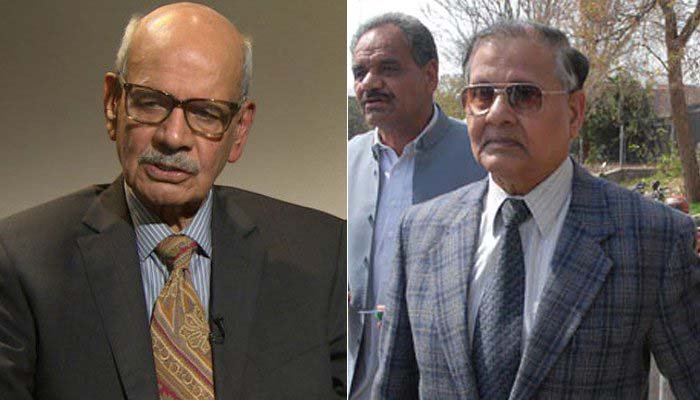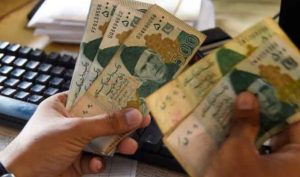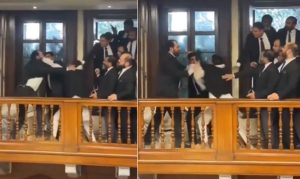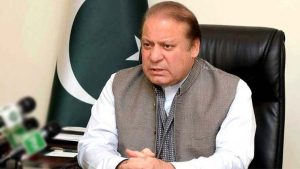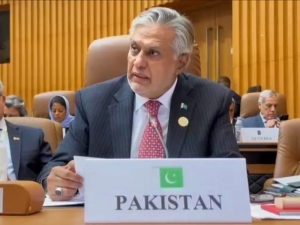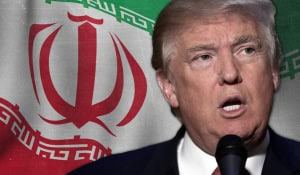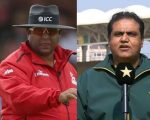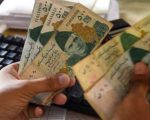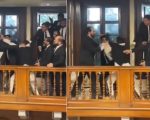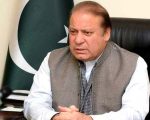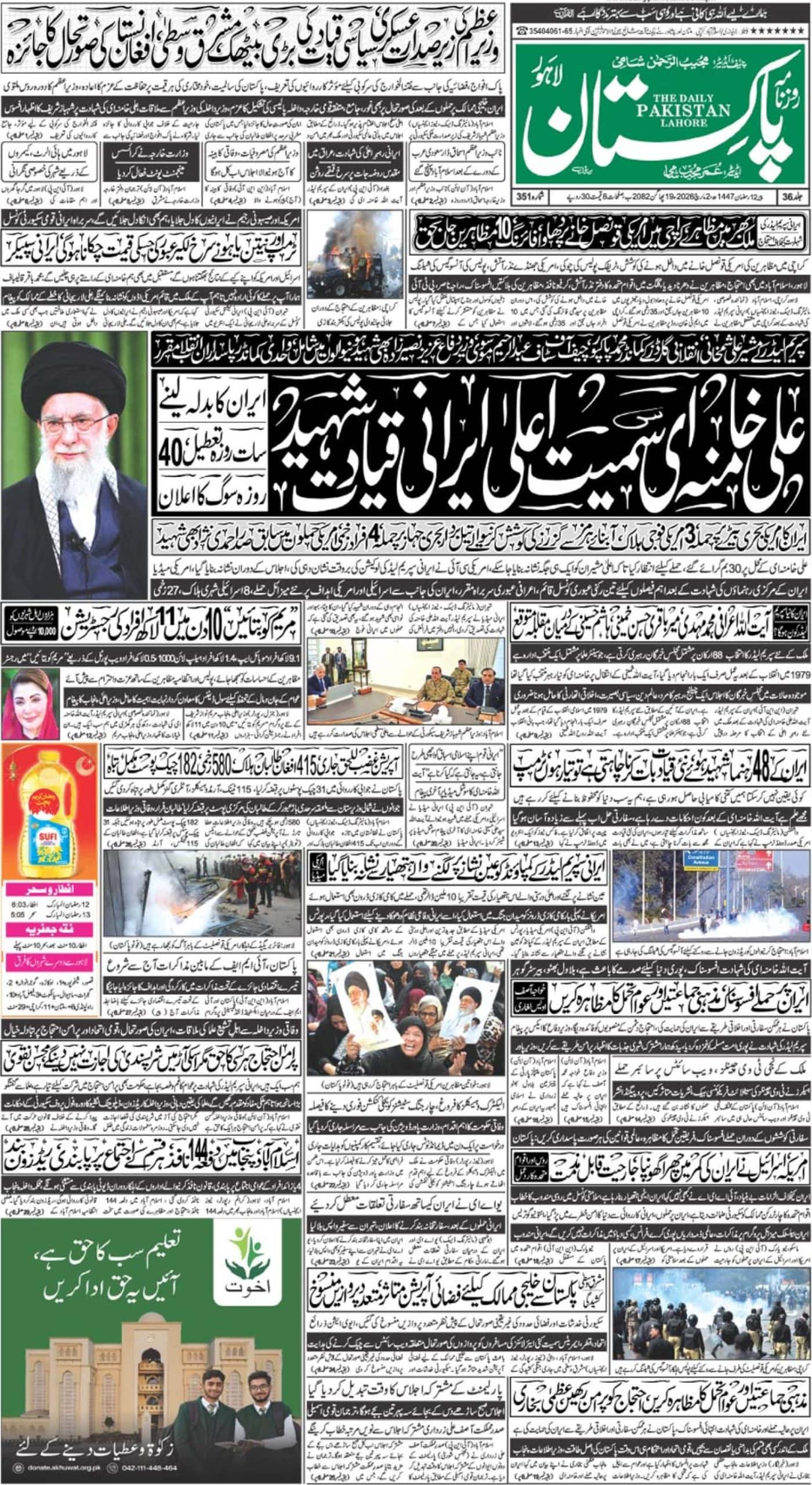ISLAMABAD – Former chief of Inter-Services Intelligence, Lt Gen (retd) Asad Durrani has admitted before the Federal Investigation Agency that the ‘Political Cell’ of ISI carried out a political assessment ahead of the 1990 elections, which was beyond its mandate.
In his statement before the investigative agency tasked to probe the high-profile Asghar Khan case, the former director general of ISI admitted that the-then Chief of Army Staff, General Mirza Aslam, Beg was his boss and was aware of ISI’s meddling in political affairs.
“The political cell was established by Bhutto in 1975. It was the recommendation of some board; a study was carried out for this. It is possible that the mandate and name were different but it carried out political assessment ahead of 1990 polls,” Gen Durrani stated in before FIA probing the alleged distribution of estimated Rs148 crores among politicians to influence the 1990 polls in the country.
Regarding Younis Habib and Yousaf Memon, who are accused of distributing millions of rupees among politicians, Gen Durrani says, “I have heard about Younis Habib and met him in court. I do not have any information about Yousaf Memon. I do not think there was nomenclature (elections cell). There were certain people who worked on this. Roedad Khan was given mandate of accountability. Rafi Raza and Ajlal Zaidi were also involved.”
He also named some top military generals to have taken part in the election cell, however, did not pinpoint their role in influencing elections.
“I know Brig (R) Amanullah. He was in Quetta MI. I also know Lt Col (R) Eqbal Saeed Khan. He was in Rawalpindi GHQ. I do not now Lt Col (R) Ejaz. I know Lt Gol (R) Mir Akbar Ali Khan who was posted in MI Directorate. I also know Brig (R) Kamal Alam Khan who was posted in ISI when I was leaving ISI and I do not know much about him. I meet President [Ishaq Khan] once a month or after two months or as and when required,” stated the former ISI chief.
In his statement to the apex court, the former spy chief revealed that a year after retirement, he was selected for Germany in 1994, almost six months after Benazir Bhutto took over as prime minister,
“I am unable to comment on the contents of the affidavit in an open court because I am bound by the official secrets act. I am of course prepared to answer your questions in your chamber or in camera proceedings,” Durrani said about the affidavit in which he named politicians who received money ahead of 1990 elections.
“In April 1994, there was a press release issued on behalf of Gen Beg that Mr Habib and his community had donated Rs140 million and Mr Habib deposited this amount in the account of a government agency. It was later reported in the press that Gen Beg had further elaborated that the ISI had spent Rs60 million out of this donation for political intelligence prior to the 1990 elections, and put the rest in a special fund,” he said in his statement.
Durrani expressed that at that time he was heading ISI and Gen Beg confirmed to him that these statements had been given.
“In early June 1994, I was contacted by Maj Gen (R) Nasirullah Khan Babar, the then interior minister who told me that a commission or inquiry had been constituted to ascertain the facts regarding Gen Beg’s statement. He also added that he had discussion with Gen Abdul Waheed Kakar, then COAS, who assured army’s cooperation. Gen Babar said that an FIA director was on his way to take my statement,” Durrani continued.
The former spy czar further revealed that FIA Director Rehman Malik contacted him on June 6, 1994 and presented a letter from the FIA DG asking him for necessary details, The News reported.
“I talked to Gen Babar and pointed out that there were certain sensitivities of the case and he suggested that I could address a confidential statement to premier Benazir Bhutto,” added Gen Durrani.
He also claimed that a statement by Rehman Malik was prepared, which he just signed.
“I agreed. I wrote a letter to the premier, providing the information, pointing out the implications that I believed were of sensitive nature and requested for discreet handling. Mr Malik came back from Germany after a few weeks and my statement had been typed out on a court paper and I was required to sign it for perusal by the commission. I was told that it had the approval of the chief executive and that the matter would be handled confidentially. I signed that prepared statement which was given to me by Mr Malik.”
Gen Durrani continued that for the next two years, he heard nothing more on the subject till Gen Babar referred to the affidavit in the National Assembly which was given by him (Durrani).
“The affidavit was got signed from me on the understanding that it would only be used for the specific purpose. I am proceeding to Germany and therefore unable to personally attend the proceedings,” concluded Gen Durrani in his affidavit submitted to the Supreme Court.
Gen Asad Durrani is not the sole character believed to have taken part in the notorious Asghar Khan case. The other top military official accused in the case is the former military head, Gen Mirza Aslam Beg who had claimed that Durrani was warned against dragging the military into “political engineering” ahead of the 1990 polls.
“I warned Durrani to be careful in the handling of those [ISI] funds. After this, I never again discussed this matter with him [Durrani]. I gave him no names of politicians or the money to be distributed because this was entirely his domain, and he was responsible to report to the president,” Gen Beg revealed in his written statement submitted to the FIA and the apex court.
Asghar Khan Case
Filed by former air chief, Asghar Khan, the case in question is one of the most talked about cases in the judicial history of Pakistan. It also gives a glimpse about the civil-military relations and the role played by the military establishment in the political domain.
Air Marshal Asghar Khan, in his petition filed in 1996, claimed that two senior army officers and then-president Ghulam Ishaq Khan doled out Rs 140 million among few individuals to thwart the bid of Pakistan People’s Party, secure victory in the 1990 elections.
The petition was filed when Justice Nasim Hassan Shah was the Chief Justice, however, the verdict came after a span of 16 years on October 19, 2012 when the apex court issued a 141-page verdict, ordering legal proceedings against Gen (retd) Beg and Lt Gen (retd) Durrani, however, nothing substantial was done in this regard.
The 2012 apex court judgment, authored by the then-Chief Justice of Pakistan Iftikhar Chaudhry, had directed the Federal Investigation Agency to initiate a transparent investigation and subsequent trial if sufficient evidence is found against the former army officers.
Asghar Khan, who passed away in January this year, was represented in the Supreme Court by renowned lawyer Salman Akram Raja.
Interestingly, the federal government had filed a review petition in 2012 when Asif Ali Zardari was the president, however, it was taken back.
Among the politicians accused of receiving money, the most noticeable is Nawaz Sharif, the former premier of Pakistan, who, according to the affidavit submitted by Asad Durrani got Rs 3.5 million.
Asghar Khan Case Verdict
On October 19, 2012, a Supreme Court bench headed by a former chief justice of Pakistan (CJP), Iftikhar Chaudhry, directed the then PPP government to take action against the former military officials for doling Rs140 million to politicians in order to ensure the defeat of slain PPP leader Benazir Bhutto in the elections.
The Federal Investigation Agency had also been tasked with investigating the matter against the politicians, including embattled Sharif, who had allegedly received the money to run election campaigns. It was also ordered to recover the distributed amount from the accused politicians with profit.
Later, Beg and Durrani had later filed a review petition against the verdict, while these petitions were turned down by the Chief Justice Mian Saqib Nisar. However, both military officials refused the findings of the court in the case.
SC Scraps Review Petitions
Supreme Court of Pakistan had rejected review petitions filed by former army chief Gen Mirza Aslam Beg and the Inter-Services Intelligence (ISI) former chief Gen Asad Durrani against its 2012 verdict in Asghar Khan case, saying both officers would face consequences of their illegal acts.
The apex court’s ruling also has implications for former prime minister Nawaz Sharif, who had also been accused of receiving money ahead of the 1990 general election. The court also sought a reply from the federal government regarding executing the verdict.
Salman Akram Raja, the counsel for former air chief, late Asghar Khan, appeared before a three-member bench headed by Chief Justice Mian Saqib Nisar.
The court also remarked that both retired officers would face the consequences of their illegal acts. Justice Ijaz ul Ahsan, who is a member of the bench, asked another member whether the case can be sent for court martial.
During the hearing, the DG FIA was also summoned to inform the court about progress in the probe. The DG said that 12 accused in the case had died while statements of 18 persons have been recorded. He added that the probe was stopped after review petitions were filed. The FIA head further said that all accused were refusing the fact on receiving funds for election campaigns.
Later, the bench asked the FIA official to inform the court regarding the implementation of the 2012 verdict as review petitions have been turned down.

